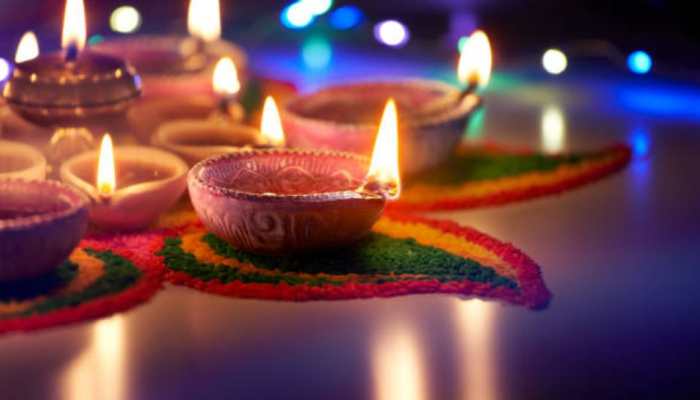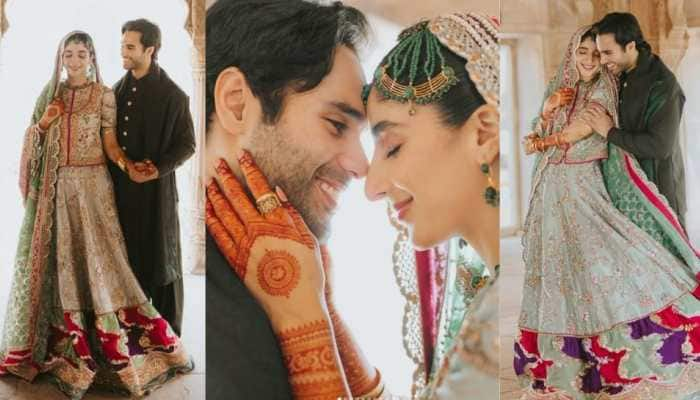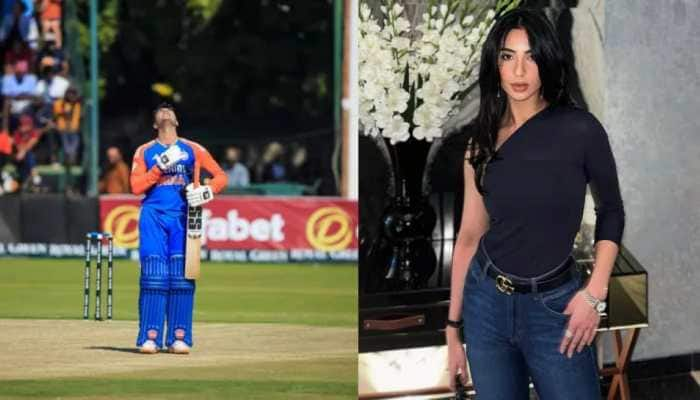Diwali 2024: Deepavali Customs And Traditions You Must Know About
Diwali 2024 promises to be another year of vibrant lights, heartfelt gatherings, and joyful customs. Each tradition carries deep cultural significance, spreading happiness, prosperity, and unity among people.
Trending Photos
) Image credit: Freepik
Image credit: Freepik Diwali, the Festival of Lights, is celebrated with great enthusiasm and joy by millions around the world. In 2024, Diwali falls on November 1, marking the day with age-old customs, dazzling decorations, and joyous gatherings. This vibrant festival celebrates the victory of light over darkness and good over evil, originating from various mythological stories across India. Here’s a look at some of the customs and traditions that make Diwali one of the most cherished festivals:
1. Lighting Diyas and Candles
Diwali is synonymous with the lighting of diyas (oil lamps) and candles to brighten homes and workplaces. This tradition symbolizes the triumph of light over darkness and knowledge over ignorance. On Diwali night, every home is adorned with diyas, candles, and fairy lights, creating a mesmerizing glow that lights up entire neighborhoods. It is believed that these lights help guide the goddess Lakshmi, the deity of wealth, to people's homes.
2. Creating Rangolis
Rangoli, a beautiful and colorful pattern made on the floor, is another popular tradition during Diwali. Using colored powders, flowers, rice, or sand, families create intricate designs at the entrance of their homes. The patterns range from simple geometric shapes to complex floral and peacock motifs. Rangolis are believed to bring good luck and welcome guests with positive energy, as well as ward off evil spirits.
3. Worshipping Goddess Lakshmi
The worship of Goddess Lakshmi, the goddess of wealth and prosperity, is one of the core customs of Diwali. Families perform a Lakshmi Puja, where they seek blessings for happiness, prosperity, and success. Homes are thoroughly cleaned and decorated to welcome her, as it’s believed that the goddess only visits places that are clean, bright, and pure. Devotees offer sweets, flowers, and fruits while reciting prayers and mantras.
4. Exchanging Gifts and Sweets
Gift-giving is a cherished part of Diwali, representing the exchange of love and goodwill. People present gifts to family members, friends, and neighbors, sharing happiness and strengthening bonds. Sweets, in particular, play a significant role during Diwali. Varieties of traditional sweets like ladoos, barfis, and jalebis are made at home or bought from shops, adding sweetness to the celebrations. Each gift and sweet exchanged symbolizes affection and blessings for the recipient.
5. Bursting Firecrackers
Though firecrackers have become a topic of debate due to environmental concerns, traditionally, bursting firecrackers has been a major Diwali highlight, especially for children. Firecrackers are believed to drive away negative energies and welcome the arrival of good times. Many communities now encourage eco-friendly celebrations with reduced or noiseless fireworks to protect the environment while maintaining the festive spirit.
6. Playing Games of Chance
In some parts of India, especially in North India, card games and dice games are popular during Diwali. This tradition is believed to originate from a story in which Goddess Parvati played dice with her husband, Lord Shiva, on Diwali night and declared that whoever gambled on Diwali would prosper. Games are enjoyed with family and friends, adding an element of excitement to the festival. However, these games are played for fun rather than for significant gains.
7. Celebrating Bhai Dooj
Diwali festivities often conclude with Bhai Dooj, a day dedicated to celebrating the bond between brothers and sisters. Sisters perform a small ceremony, applying a tilak on their brothers’ foreheads and praying for their well-being. In return, brothers offer gifts and promise to protect their sisters. This ritual strengthens family bonds and signifies love and loyalty between siblings.
8. Feasting on Special Dishes
Diwali is incomplete without a grand feast, where families gather to enjoy a variety of delicious dishes. Different regions of India have unique Diwali delicacies, including sweets like gulab jamun, kaju katli, and savoury snacks like samosas and namkeens. These foods symbolize the abundance and prosperity associated with the festival, allowing families to share in the joy of a festive meal together.
9. Decorating Homes with Torans and Flowers
Torans (decorative door hangings) made from flowers, leaves, and beads are hung at the entrance of homes to invite prosperity and ward off negativity. Fresh marigold flowers and mango leaves are commonly used, as they are considered auspicious and fragrant, bringing a welcoming atmosphere to the home. Torans are a beautiful way to create a festive vibe and add a natural charm to the celebration.
10. The Spirit of Charity
Diwali is also a time for giving back to the community. Many families make it a tradition to donate food, clothes, and other essentials to those in need. This custom of charity helps spread the joy of Diwali and ensures that everyone can celebrate the festival with happiness and dignity.
Whether it’s lighting diyas, sharing sweets, or creating colorful rangolis, every Diwali custom brings families together, nurturing a sense of gratitude and love for one another. Celebrating these traditions helps us preserve the true spirit of Diwali and share its light with the world.
(This article is intended for your general information only. Zee News does not vouch for its accuracy or reliability.)
Stay informed on all the latest news, real-time breaking news updates, and follow all the important headlines in india news and world News on Zee News.
Live Tv







)
)
)
)
)
)
)
)
)
)

